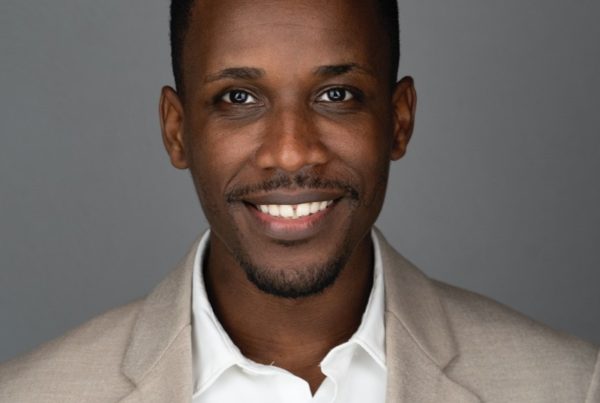Podcast: Play in new window | Download
Subscribe: RSS
How Do You Navigate Leadership on a Global Scale?

Melissa Lamson
Melissa Lamson, CEO of Lamson Consulting, works with successful leaders to refine their professional skills and create more effective teams.
She is the author of The New Global Manager: Learning to Manage Well in a Complex Business Environment. The book is a daily resource for managers. It provides practical tools, frameworks, strategies, and tips for successfully managing teams face-to-face and virtually.
Melissa has partnered with top C-level executives across the world. She has built leadership learning strategy from the ground up. Melissa has first-hand knowledge of leading industries, including the latest advancements in AI.
With successful projects in over 40 countries, Melissa brings a unique global perspective to her work with leaders. Currently based in Phoenix, Arizona, she travels continuously to work with clients and deliver programs around the globe.
What We Discuss With Melissa Lamson In This Episode
- Things to think about when taking your company global
- Understanding the nuances of leadership and team dynamics across countries
- Applying the OAR framework
- How to navigate leadership as a woman
- How to lead virtual teams
Transcript Highlights
Taking Your Company Global
It’s important to understand the dynamics of society. This includes all the legal considerations, logistical issues, and the employee pipeline.
Additionally, communication with potential employees is also critical in terms of recruiting, hiring, and creating an opportunity for them to grow within your organization.
Consider what kinds of titles and succession planning you can do. For instance, you may have three or four job titles and a succession plan. But it’s not about good or bad or difficult. It’s just about how things are different in terms of the expectations of the environment.
Managers developing a global mindset are defined by intellectual, psychological, and social capabilities.
- Intellectual – They understand how contracts are written, what needs to be in contracts, how to build relationships with vendors, and what customers expect.
- Psychological capability – They have an interest in working in a diverse environment and they’re comfortable with new things and new ways of doing things.
- Social – They have the interpersonal skills to be able to interact and build relationships. They understand how people communicate across cultures.
The Differences in Team Dynamics Across Countries
Interacting and Sharing Ideas
In the U.S., people tend to look at hierarchy as being a bit flatter. We see everyone as an individual expert. They can contribute whatever their knowledge and experience bring.
Managers and leaders are basically facilitators of expertise and everyone can participate in a conversation. They can debate, question, and add good ideas. People jump in and say what they think. They’re not going to necessarily be concerned too much about whether the hierarchy in the room allows them to say something.
Whereas in Japan and China, for instance, it may not be as common to just jump in and express yourself. Usually, someone in the hierarchy has to specifically ask you to participate or express what you have to say. That being said, it wouldn’t necessarily come out in the most direct manner.
Working with Teams and Solving Problems
In teams, hierarchy is important. The boss or manager is the person who should direct the team. In the U.S., this may feel a little bit like micromanagement.
However, for an environment that is more hierarchical, it’s important for leaders to say what they need the team to do. People won’t necessarily come to their boss with their problems; otherwise, they’ll see that as offending the manager’s ability to lead them.
Whereas in the U.S., leaders want people to come to them if they have problems. That way, they can help solve them. They don’t see that as a reflection of the individual or of their own leadership capabilities.
Applying the OAR Framework
It’s about understanding where the nuances are within a particular society.
- Observe
- Ask questions
- React
Assess the situation and analyze it before you jump in and make a decision.
Know that there are cultural differences. Even if you don’t know what they specifically are, it gives you an opportunity to find out what those are.
Navigating Leadership as a Woman
When we’re looking at all the dimensions of diversity in business, it’s layer upon layer of complexity.
Being a woman of a certain age of a certain ethnicity or background in a totally new environment – all of that plays a role in credibility, perception, and the ability to build relationships.
There are also issues around attitudes towards family dynamics. Who will take care of the children? What infrastructure is needed for childcare? What pieces should couples consider to have more flexible work and life balance? Regardless of which country they’re from, Melissa found it’s the same issue for all women.
Think about how you network in an organization, even more so than the content you’re producing and the tasks you’re working on.
Own the differences. Have those hard conversations with the men in your team. And then create empathy. As a result, there’s actual change, partnership, and collaboration.
How to Lead Virtual Teams
As a leader, understand how to be more effective virtually how to build those relationships, how to motivate, and engage teams. Understand how to connect with people and be empathic about their personal situations.
Episode Resources
Book: The New Global Manager
Free downloads: https://lamsonconsulting.com/resources
Connect With Melissa Lamson
- Website: https://lamsonconsulting.com
- Facebook: https://www.facebook.com/lamsonconsulting
- Twitter: https://twitter.com/melissa_lamson1
- Instagram: https://www.instagram.com/melissa_lamson
Did You Enjoy The Podcast?
If you enjoyed this episode please let us know! 5-star reviews for the Leaders Of Transformation podcast on Apple Podcasts, Spotify, Pandora or Stitcher are greatly appreciated. This helps us reach more purpose-driven entrepreneurs seeking to make a positive impact in the world. Thank you. Together, we make a difference!










